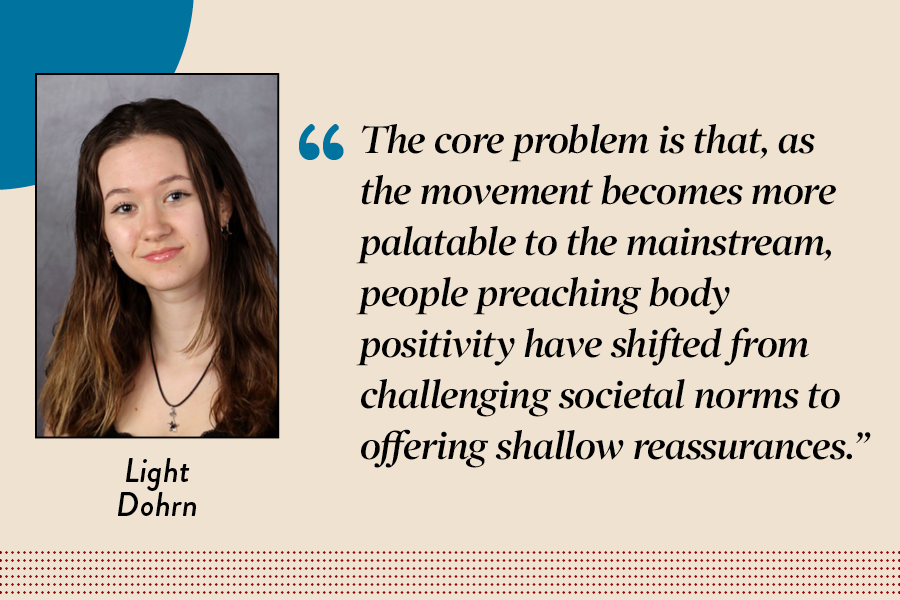The term “body positivity” can be traced all the way back to the 1960s, initially a rallying cry for disabled individuals, people of color, people with obesity and others excluded from mainstream beauty ideals. It was raw, radical and unapologetic in that grassroots way, its mission clear and simple: to affirm that all bodies are worthy — not of desire, objectification or the newest piece of lingerie — but of respect.
Nowadays, body positivity is a marketing strategy. Corporations, especially women’s fashion and beauty brands, have begun putting five or six slightly differently proportioned, mostly white, scantily clad women before an aesthetic background and claiming their company is working to represent more body types — effective examples are displayed in the Skims “All-Star” photo shoot as well as the Dove “Real Beauty” campaign. Both advertisement efforts received large amounts of praise, but they simply weren’t radical, or even ethical — they were calculated attempts to cash in on a movement without really addressing the issues behind it. It gets to a point where these attempts at growth become not only questionably motivated but downright patronizing to those who are being pandered to.
Additionally, the condescending and self-congratulatory tone in mainstream body positivity has seeped into the narcissism of posts and comments as the movement has already transitioned into the era of social media. Instead of celebrating bodies for what they are, there is always an underlying message of “Look how brave you are for loving yourself despite your flaws!” A prime example appears when an overweight girl posts a video on social media showing off an outfit or makeup look. The comment section is consistently filled with responses like, “You look like you give the best hugs!” or “I’m so glad everyone in the comments is being so sweet.” It reeks of patronization and reinforces the very standards the movement was supposed to combat.
The core problem is that, as the movement becomes more palatable to the mainstream, people preaching body positivity have shifted from challenging societal norms to offering shallow reassurances. As a society, we’ve gone from a movement of resistance to one of watered-down mantras slapped onto clothing advertisements and social media comments. It’s easy to embrace body positivity when it doesn’t actually demand that you confront the systems of fatphobia, ableism or racism that fuel body discrimination by having real conversations, using real language and seeing real representation — none of which should be shrouded in white lace and lies.
The solution isn’t to abandon the cause of body positivity altogether, but to recenter its fundamental ideas around their original intent. Essentially, it must return to its roots as a movement that demands radical change, not just personal affirmation. Body positivity should be about more than “loving yourself” — it should be about dismantling the structures that tell you that you’re not worthy of love in the first place.





















































